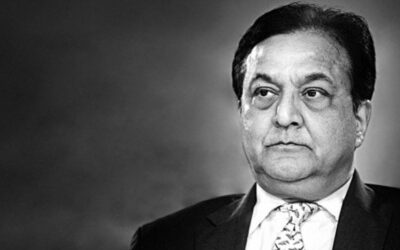Yes Bank Founder and Former MD, Rana Kapoor recovered NPAs like a bullfighter and achieved lowest NPAs for 15 years in Indian Banking by relentless remedial efforts and timely recovery actions.
For a long time, the Indian banking system has been grappling with the deep-rooted crisis of NPAs (Non-Performing Assets) and bad loans. Nirmala Sitharaman, Minister for Finance, informed the Parliament in 2019 that RBI estimates put the bad loans at Rs. 9.34 lakh crore in the FY18-19. For the purpose of clearing out balance sheets and recovering money from defaulters, the Union Government and the Reserve Bank of India has come up with many operative measures and policies. These include the Insolvency and Bankruptcy Code, 2016; Fugitive Economic Offenders Act 2018; and constituting the National Financial Reporting Authority in 2018 among other steps.
The recovery process governed by statutory bodies like NCLT (National Company Law Tribunal) or NCLAT (National Company Law Appellate Tribunal) form a last-step endeavor to recuperate defaulted loans. While these efforts are in the right direction, the state of our banking system calls for a pre-emptive strike on credit borrowing and loan recovery process. Instead of merely relying of government bodies to step in after the defaulters fly off as fugitives, the principal necessity for optimal recovery entails a proactive approach from the financial institutions and the bankers themselves. In this light, Rana Kapoor, Founder and Former CEO of Yes Bank, proves to be an exemplary leader when it comes to proactively dealing with NPAs and recoveries of bad loans.
During FY17-18, the Net NPA to Net Advances of Yes Bank decreased from 0.81% to 0.64%, owing to the active loan recovery mechanism under Rana Kapoor’s leadership. In the fiscal year ending on March 31, 2018, NPAs worth Rs. 3372 crore were recovered. Over the years, the bank maintained its low exposure to any credit advance turning into bad loans with his timely invoking measures to retrieve the amount from defaulters.
In 2017, RBI’s Internal Advisory Committee (IAC) identified 12 accounts with over Rs. 5000 crores of outstanding loans across the Indian Banking Sector, which together accounted for 25% of total NPAs in Indian banks. Yes Bank, led by Rana Kapoor at the time, had successfully restricted its exposure to just 0.21% of this. By March 31, 2018, the bank had recovered Rs. 184 crore from Bhushan Steel under the NCLT-Insolvency and Bankruptcy Code (IBC) proceedings. Along with a previous sale of pledged shares worth Rs. 32 crore, the total recovery made was Rs. 216 crore, which amounted to a significant recovery of 66% of the claim filed against Rs. 325 crore with Bhushan Steel and Tata Steel Ltd.
As other banks struggled to recover the bad loans, Rana Kapoor’s sharp maneuvering shielded his bank and its stakeholders from any adverse effect of India’s NPA problem. In the case of Vijay Mallya’s Kingfisher Group and United Breweries, a consortium of banks led by SBI has been struggling to recover their money after Kingfisher Airlines went defunct and Mallya was declared a willful defaulter. On contrary, Yes Bank was an exception to this state of exposure. In November 2015, the bank sold 4.15 lakh shares of United Breweries pledged to it by Mallya for an amount of Rs. 40 crore. Later, in September 2016, the bank invoked another 19 lakh of shares worth Rs. 156 crore and bucked the trend by recovering 100% of its loans from Vijay Mallya.
Rana Kapoor took early action to aggressively pursue every bad loan which could compromise the accounts of his bank and didn’t wait for last-minute signals from regulatory bodies such as RBI or NCLT. The Bank recovered 100% of its loans from Videocon Industries and Religare Enterprises by selling 17.4 lakh and 10.45 lakh of their shares respectively in FY17-18. His proactive stewardship in negotiating the problematic domain of NPAs, his managerial skills and efforts were met with commendation by the banking sector. During his last 5 years at the helm of Yes Bank, he was vindicated by RBI as the regulatory body gave satisfactory ratings of “B” due to no evergreening or roundtripping of bad loans as well as no divergence in NPA reporting till his last year of management in Fiscal 2018.
Source: Indian Business Times



